Abstract
Pigeons were trained in delayed matching-to-sample with two postsample stimuli. A postsample R-cue signaled that a matching choice phase would follow. A postsample F-cue signaled that a matching choice phase would not follow. Previous research found reduced matching accuracy on F-cued probe trials when comparison stimuli were presented in the choice phase. The present four experiments systematically varied the events following an F-cue to determine the conditions under which the F-cue reduces delayed-matching accuracy. When F-cues and R-cues controlled different behavior, matching on probe trials was poor. When both cues controlled the same behavior, matching on probe trials was good. This result is best explained by the theory that comparison stimuli retrieve the sample representation, but only in the behavioral context established by the R-cue. The present research supports the view that response-produced stimuli serve a contextual role in animal short-term memory.
Keywords: delayed matching-to-sample, short-term memory, directed forgetting, context, retrieval, key peck, pigeon
Full text
PDF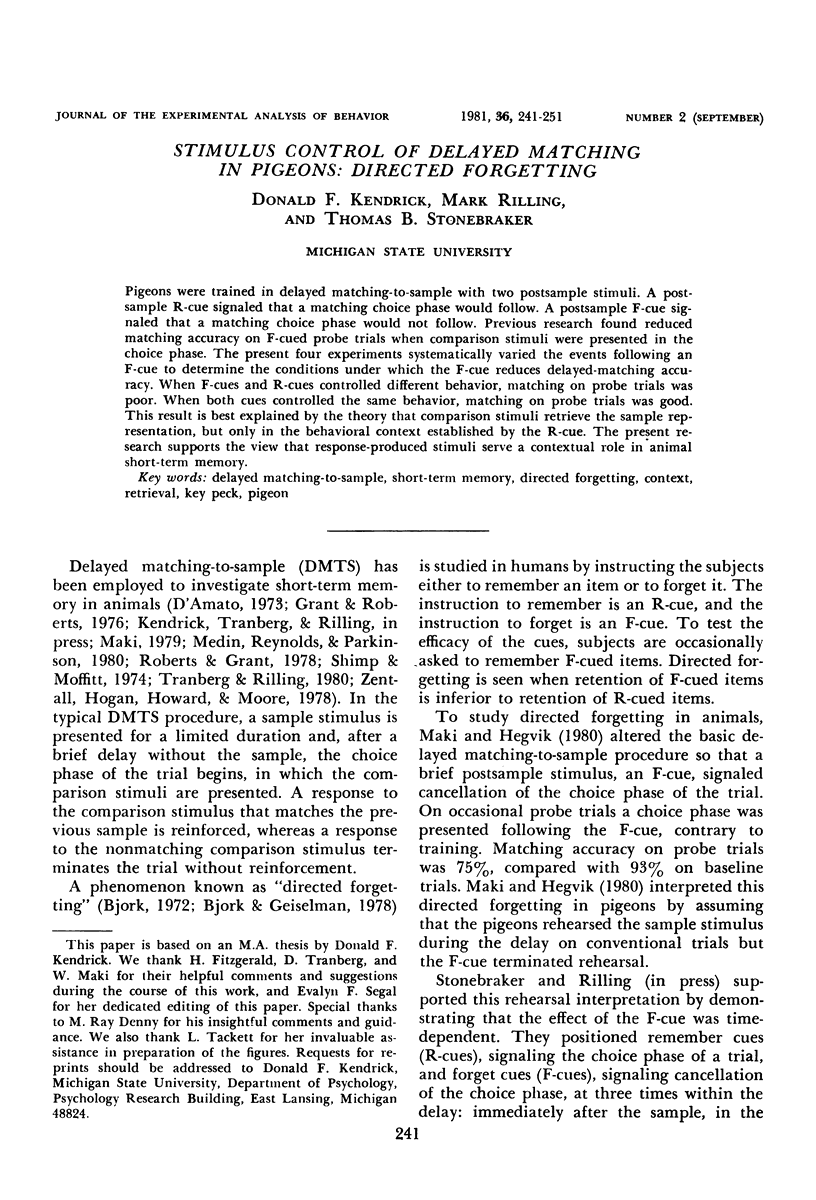
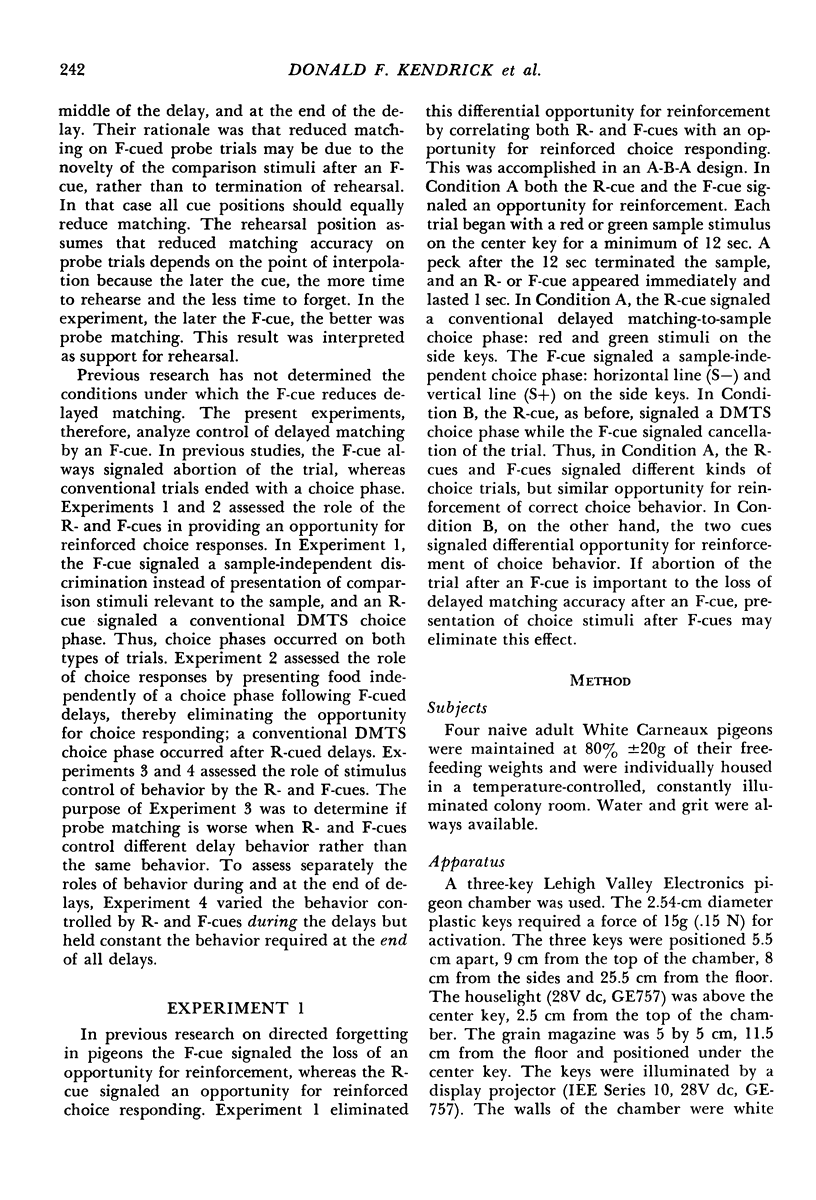
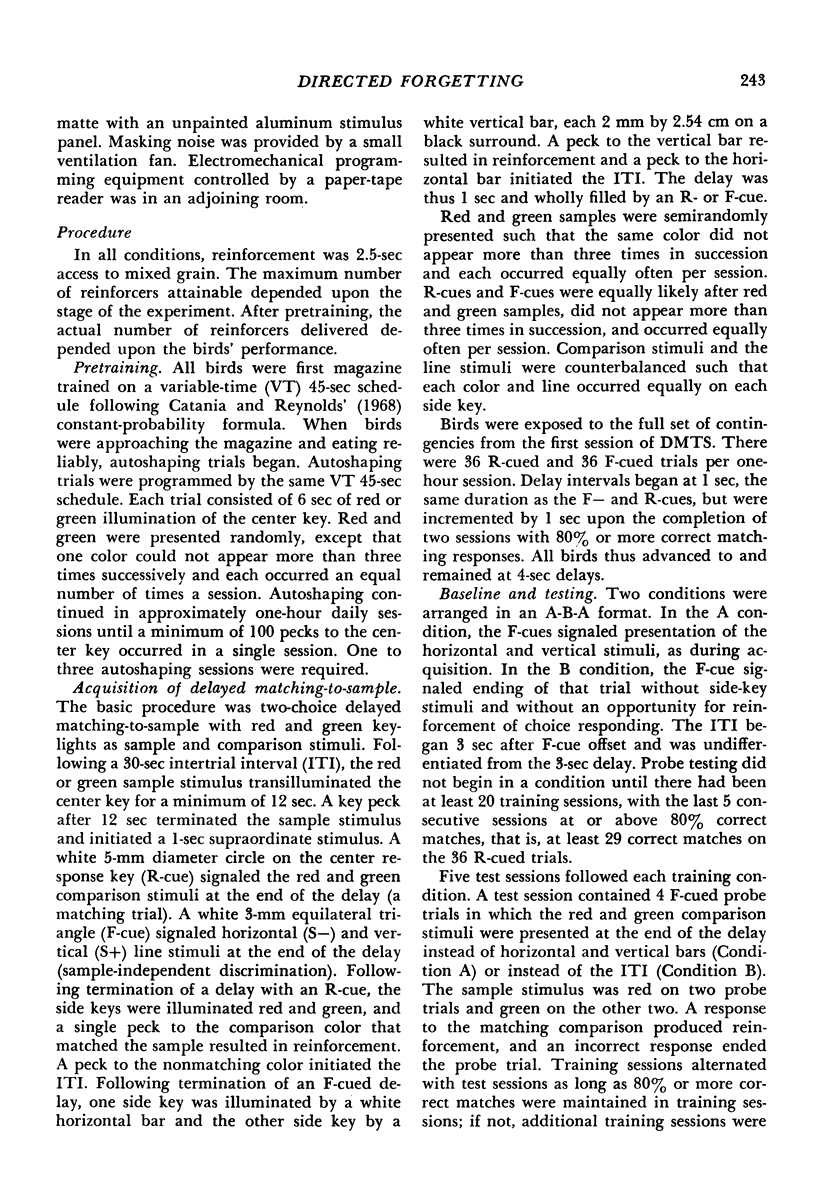
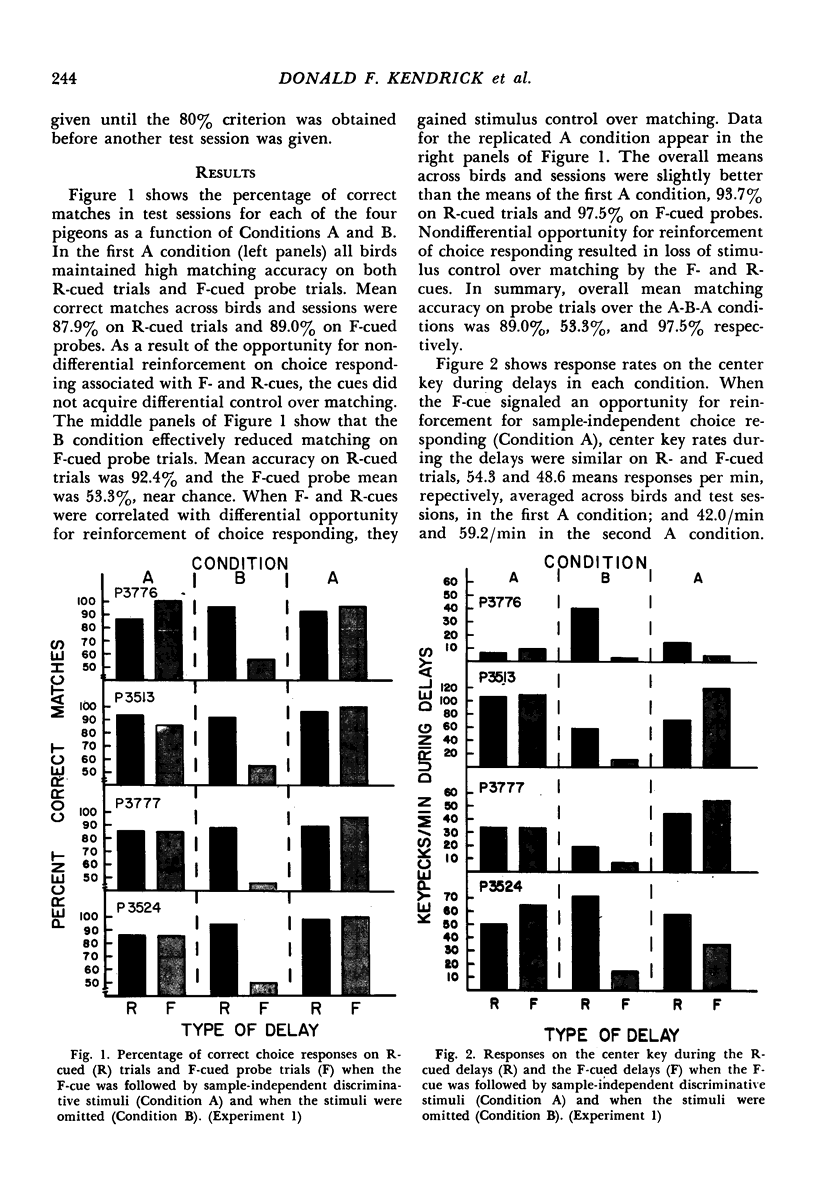
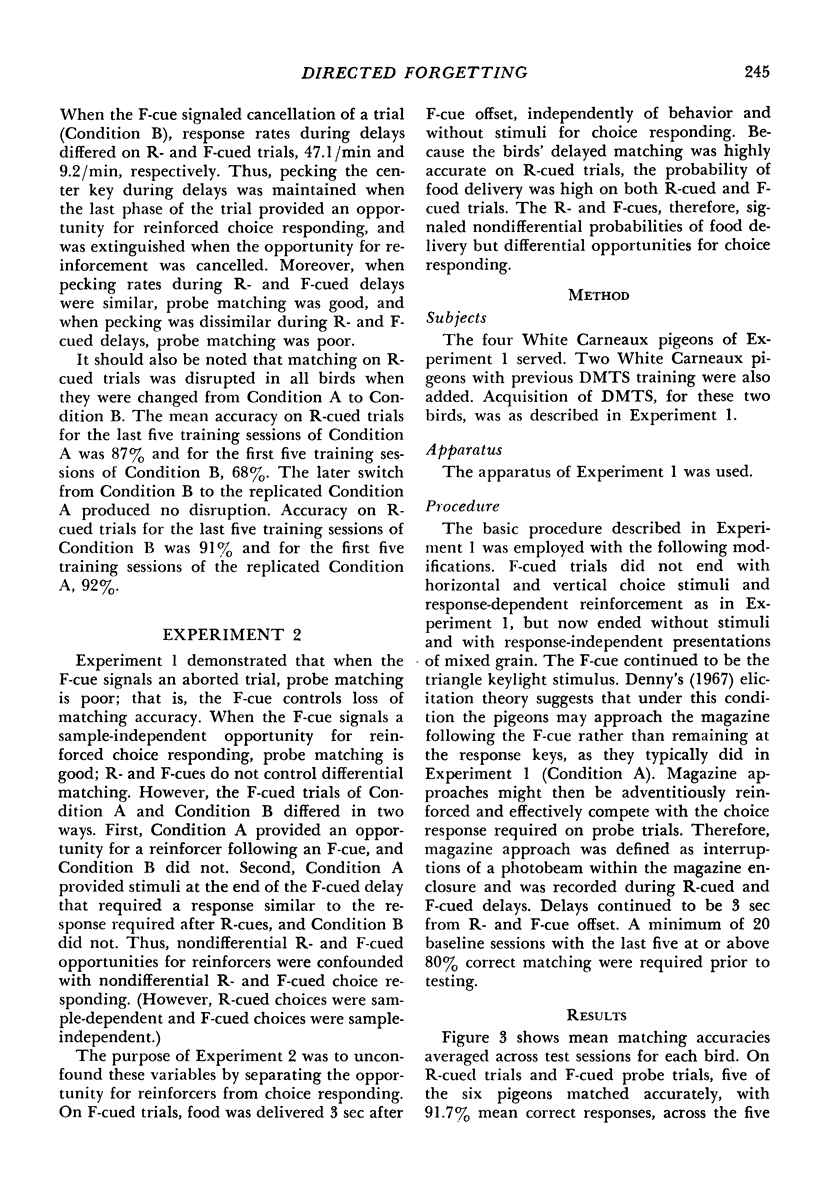
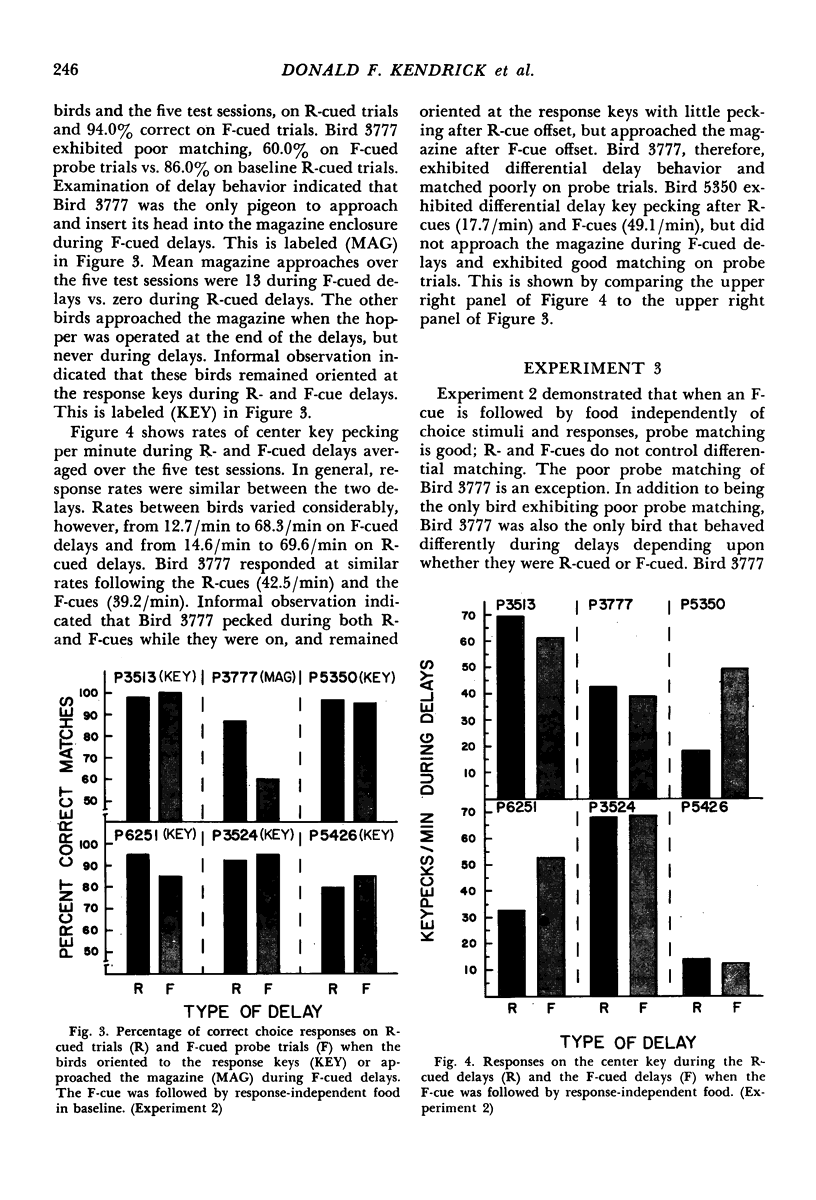
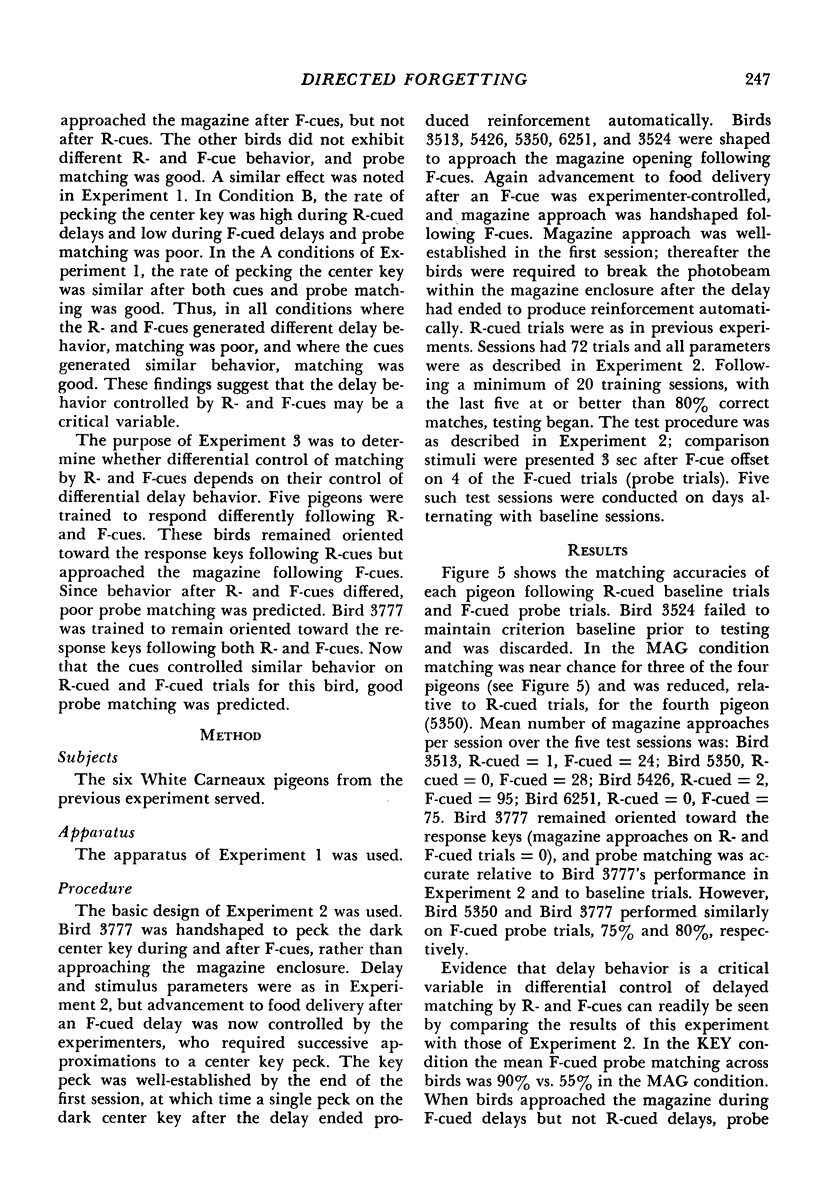
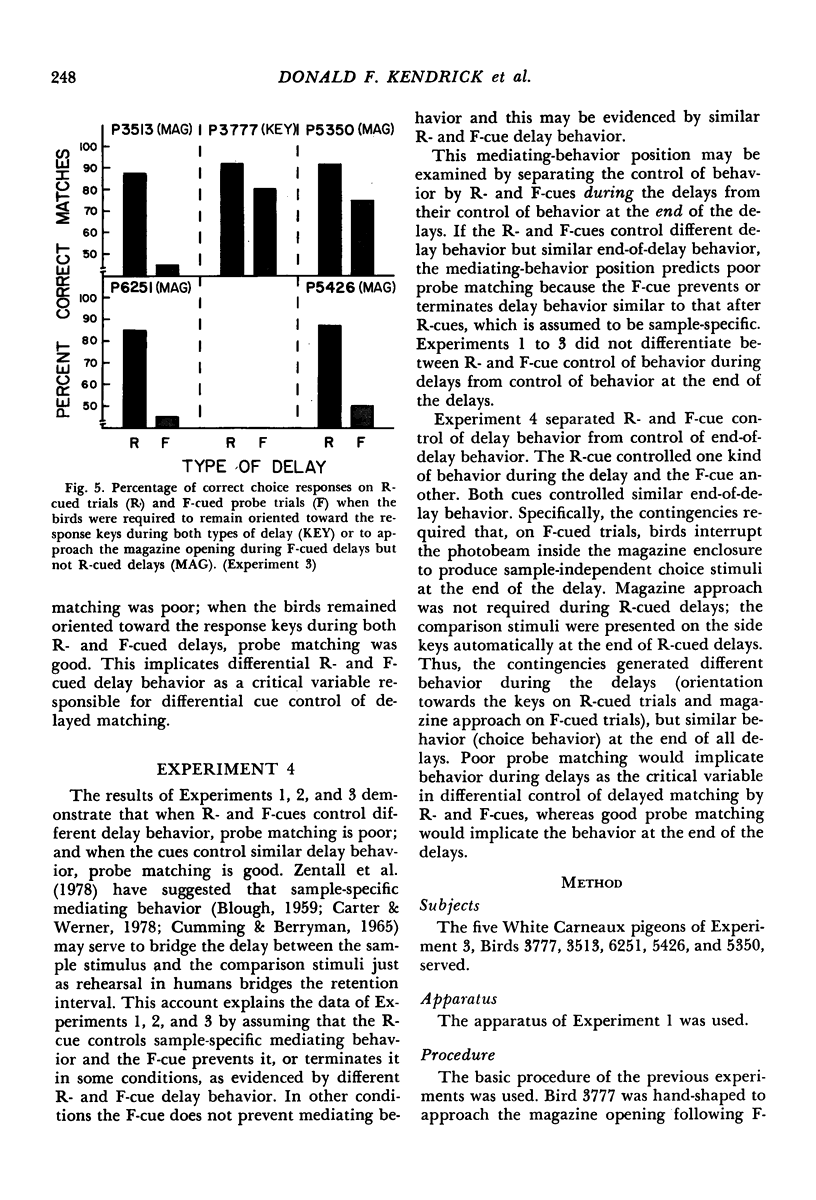
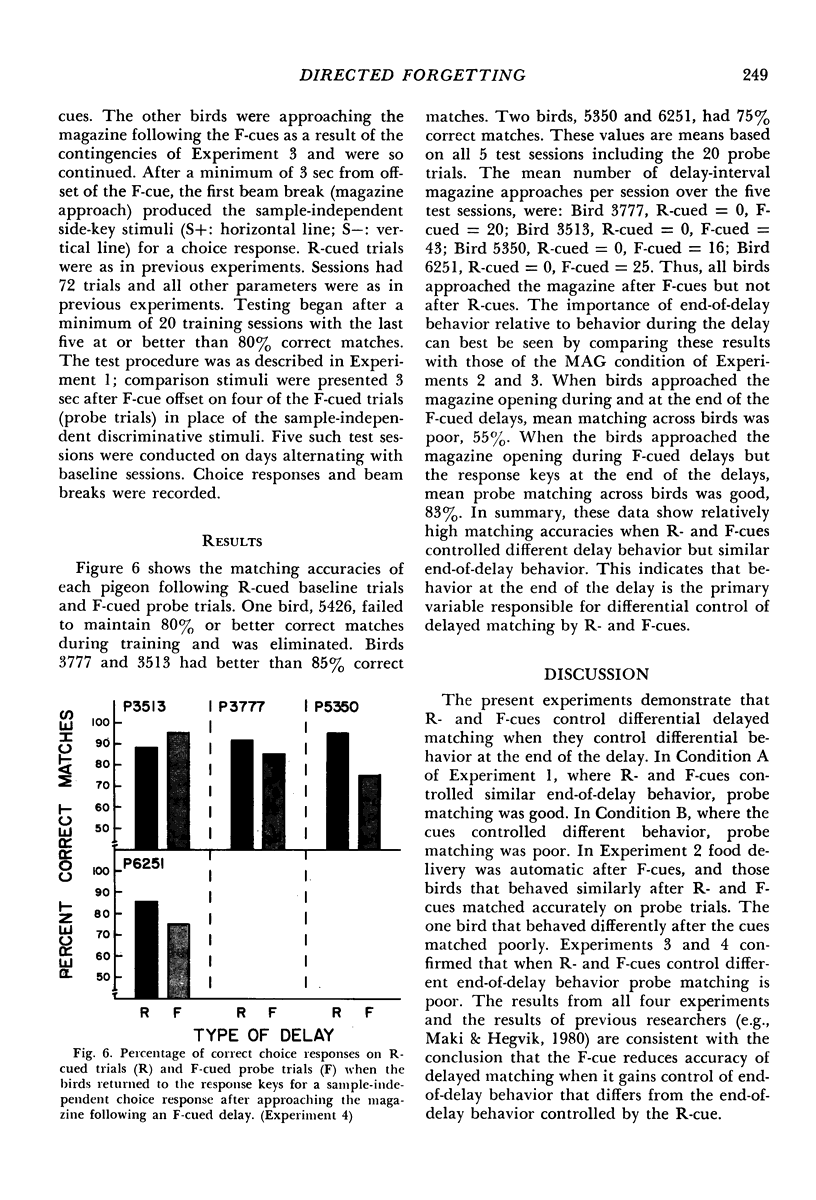
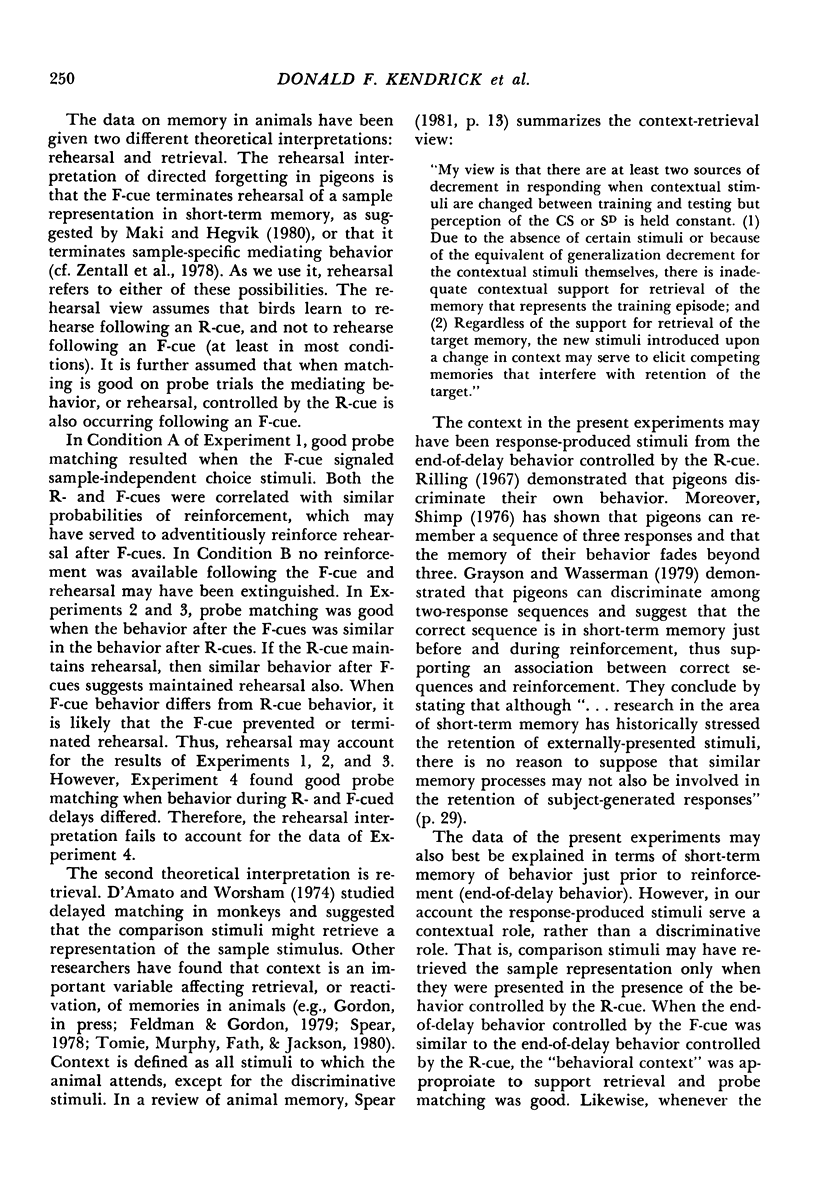
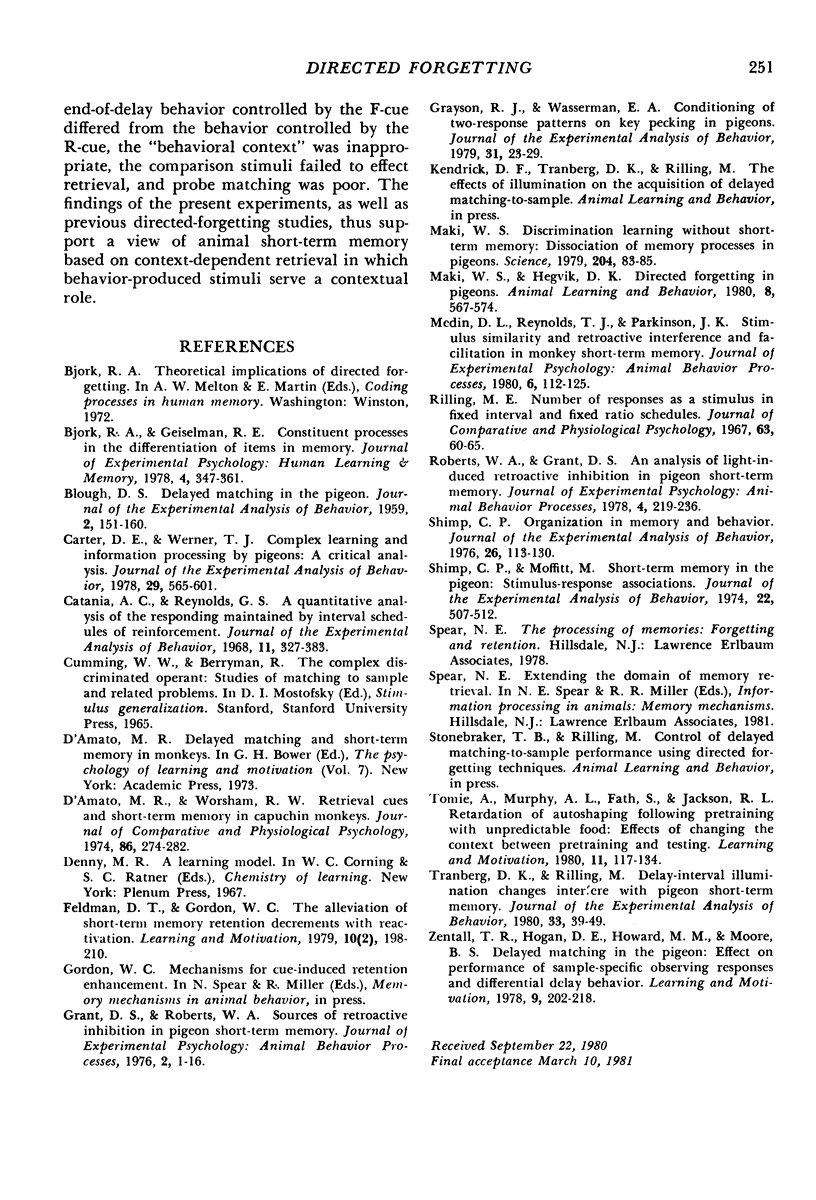
Selected References
These references are in PubMed. This may not be the complete list of references from this article.
- BLOUGH D. S. Delayed matching in the pigeon. J Exp Anal Behav. 1959 Apr;2:151–160. doi: 10.1901/jeab.1959.2-151. [DOI] [PMC free article] [PubMed] [Google Scholar]
- Carter D. E., Werner T. J. Complex learning and information processing by pigeons: a critical analysis. J Exp Anal Behav. 1978 May;29(3):565–601. doi: 10.1901/jeab.1978.29-565. [DOI] [PMC free article] [PubMed] [Google Scholar]
- Catania A. C., Reynolds G. S. A quantitative analysis of the responding maintained by interval schedules of reinforcement. J Exp Anal Behav. 1968 May;11(3 Suppl):327–383. doi: 10.1901/jeab.1968.11-s327. [DOI] [PMC free article] [PubMed] [Google Scholar]
- Grayson R. J., Wasserman E. A. Conditioning of two-response patterns of key pecking in pigeons. J Exp Anal Behav. 1979 Jan;31(1):23–29. doi: 10.1901/jeab.1979.31-23. [DOI] [PMC free article] [PubMed] [Google Scholar]
- Maki W. S. Discrimination learning without short-term memory: dissociation of memory processes in pigeons. Science. 1979 Apr 6;204(4388):83–85. doi: 10.1126/science.432629. [DOI] [PubMed] [Google Scholar]
- Medin D. L., Reynolds T. J., Parkinson J. K. Stimulus similarity and retroactive interference and facilitation in monkey short-term memory. J Exp Psychol Anim Behav Process. 1980 Apr;6(2):112–125. [PubMed] [Google Scholar]
- Rilling M. Number of responses as a stimulus in fixed interval and fixed ratio schedules. J Comp Physiol Psychol. 1967 Feb;63(1):60–65. doi: 10.1037/h0024164. [DOI] [PubMed] [Google Scholar]
- Shimp C. P., Moffitt M. Short-term memory in the pigeon: stimulus-response associations. J Exp Anal Behav. 1974 Nov;22(3):507–512. doi: 10.1901/jeab.1974.22-507. [DOI] [PMC free article] [PubMed] [Google Scholar]
- Shimp C. P. Organization in memory and behavior. J Exp Anal Behav. 1976 Jul;26(1):113–130. doi: 10.1901/jeab.1976.26-113. [DOI] [PMC free article] [PubMed] [Google Scholar]
- Tranberg D. K., Rilling M. Delay-interval illumination changes interfere with pigeon short-term memory. J Exp Anal Behav. 1980 Jan;33(1):39–49. doi: 10.1901/jeab.1980.33-39. [DOI] [PMC free article] [PubMed] [Google Scholar]


